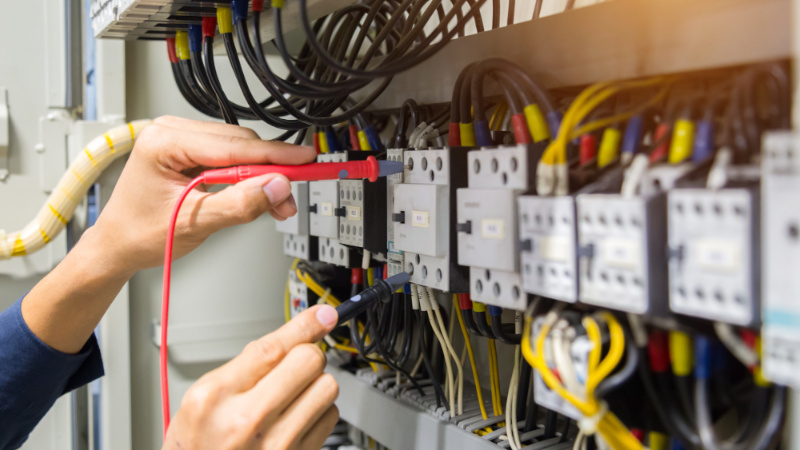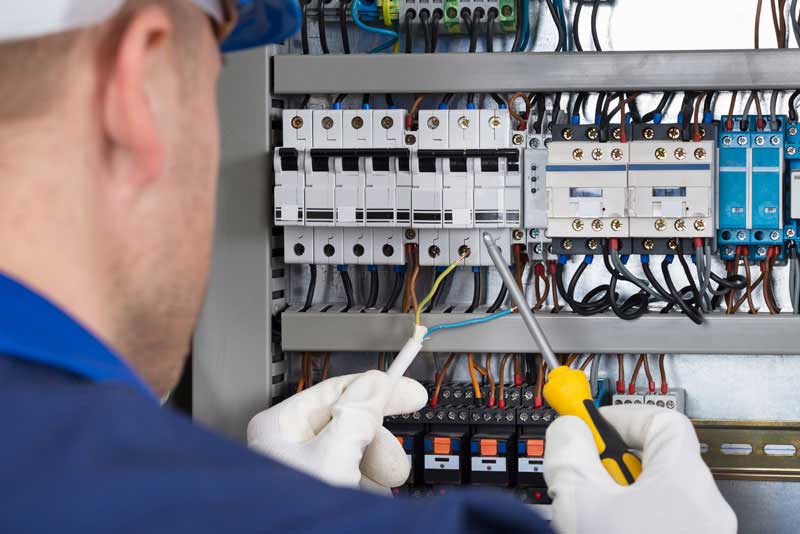What is an AFDD?
AFDD Electrical Meaning
Electrical safety is a should always be a priority. Technology advances, therefore, the need for more effective safety measures also increases.
Recently the AFDD safety device has gained prominence for electrical safety. AFDD stands for Arc Fault Detection Device. We explore the meaning and significance of AFDDs in electrical systems.
What does a AFDD do?
An AFDD is a device designed to protect against electrical fires caused by arc faults. Arc faults occur when there is an unintentional discharge of electrical current due to:
- Damaged or deteriorated wiring
- Loose electrical connections
- Other electrical faults.
These arc faults can generate high temperatures, leading to fire hazards. AFDDs are specifically designed to detect and respond to arc faults by interrupting the flow of current, thereby preventing potential electrical fires.
What is an AFDD important?
The importance of AFDDs lies in their ability to provide an additional layer of protection against electrical fires that may not be addressed by traditional circuit breakers or residual current devices (RCDs).
While circuit breakers and RCDs primarily protect against overloads and ground faults, respectively, AFDDs are specifically designed to detect and mitigate the risks associated with arc faults. Therefore, by detecting the characteristic patterns and signatures of arc faults, AFDDs can effectively interrupt the circuit and prevent potential fires.
Advantages of an AFDD
- Detection of series and parallel arc faults
- Diagnostic functions and test capabilities
- Electrical troubleshooting
One of the key advantages of AFDDs is their ability to detect both series and parallel arc faults.
Series arc faults occur when there is a break or discontinuity in the wiring, such as a damaged or corroded wire.
Parallel arc faults, on the other hand, occur when there is an unintended contact or short circuit between two conductors. AFDDs can identify and respond to both types of arc faults, ensuring comprehensive protection against potential fire hazards.
AFDDs also offer advanced features such as built-in test capabilities and diagnostic functions. These features enable regular testing and monitoring of the device’s functionality, ensuring that it is in proper working condition.
Lastly, AFDDs can provide valuable diagnostic information, such as the location and severity of detected arc faults. For troubleshooting, this helps electricians or maintenance personnel to identify and rectify potential wiring or connection issues.
Enhanced Electrical Safety
The implementation of AFDDs in electrical systems can significantly enhance safety and mitigate the risk of electrical fires. AFDDs are particularly beneficial in environments where arc faults are more likely to occur, such as
- Older buildings
- Aging wiring with little to no upkeep or regular inspections
- Locations with a higher concentration of electrical equipment.
Installing AFDD allows homeowners, building managers, and their chosen electricians to take proactive measures in regard to their electrical wiring and systems.
AFDD Electrical Meaning Summary
In conclusion, AFDDs play a vital role in electrical safety by detecting and mitigating the risks associated with arc faults.
These devices provide an additional layer of protection against electrical fires caused by damaged or deteriorated wiring, loose connections, or other electrical faults.
Detecting and interrupting arc faults, AFDDs help prevent potential fire hazards. Therefore, offering peace of mind and enhancing safety in residential and commercial settings.
The integration of AFDDs in electrical systems demonstrates a commitment to proactive electrical safety and the protection of lives and property.
It is worth noting that AFDDs should be installed by qualified electricians or professionals familiar with the local electrical regulations and requirements. Proper installation and configuration of AFDDs ensure their optimal performance and compliance with safety standards.
For additional electrical articles please visit our main BLOG page here





